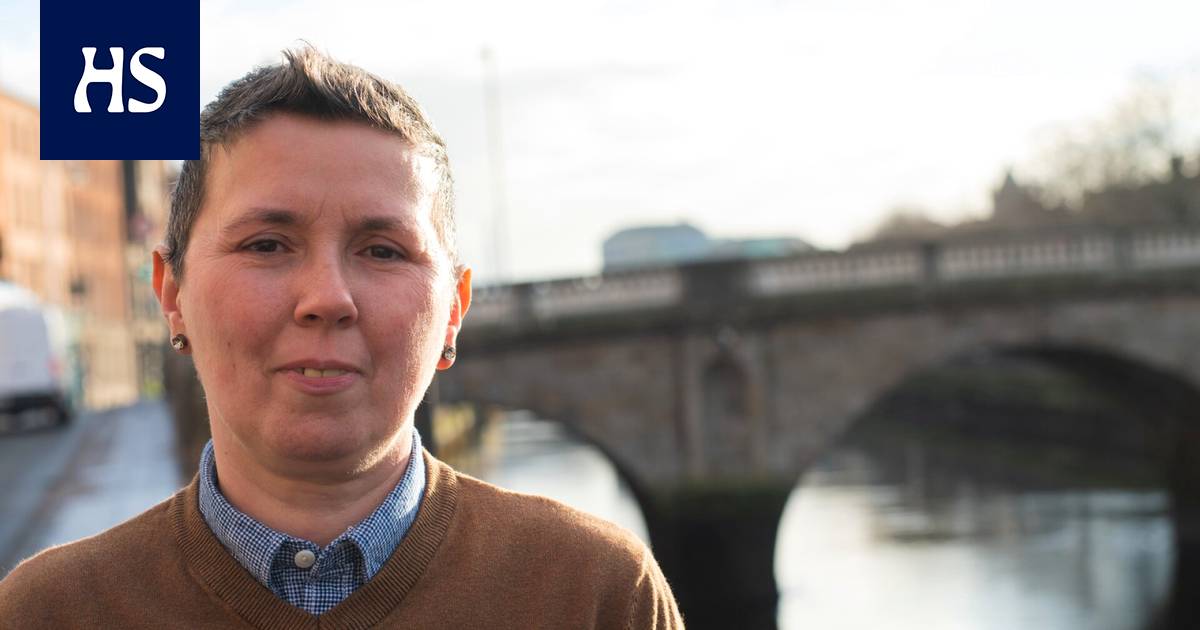In 2015, Ireland introduced gender-affirmation legislation based on self-determination. According to statistics, in the country of five million people, 1,058 people confirmed their gender in the first seven years after the law was introduced.
Dublin
About seven years ago from an Irishman Lilith from Ferreyra-Carroll became a woman in the eyes of the law. Over the course of a few weeks, Ferreyra-Carroll signed a name change document, filled out a gender confirmation form and corrected her gender on her birth certificate. After that, he could change his information on his passport and other official documents.
Just a few months earlier, in September 2015, Ireland had become the fourth country in the world to allow trans people to legally confirm their gender by self-declaration, without, for example, a doctor’s or psychiatrist’s assessment.
Today, 18 states have already introduced gender-affirmation legislation based on self-determination. Finland may also soon belong to the same group if the parliament approves the trans law reform in its vote on Wednesday.
Read more: This is all about to change with the new trans law
in Ireland The Gender Affirmation Act currently covers all adults. Unlike in the Finnish translation show, legal confirmation of gender is also possible for 16–18 year olds. For minors, however, the process is complicated and requires a court decision.
Ferreyra-Carroll was an adult when she confirmed her gender and kept it pretty simple. Since then, Ireland has made the legal process even easier: nowadays, a separate document is no longer required for a name change in connection with gender confirmation.
“Legal consolidation brought a certain sense of control and independent agency,” says Ferreyra-Carroll. When not only the appearance but also the first name referred to the female gender, everyday life became easier.
“I no longer had to worry about whether the shop cashier would see my name on the bank card.”
A year The 2015 Gender Affirmation Act expanded the rights of trans people in Ireland by a surprising amount, when you take into account the development of the rights of sexual and gender minorities in the Catholic-majority state. The decriminalization of homosexuality had passed twenty years, and the initiative on the equal marriage law had passed through a referendum a few months earlier.
A former senator Kevin Humphreys, who served as deputy minister in the Irish Department of Social Affairs in 2015 and was responsible for the reform, admitted in 2018 in an interview with the British newspaper The Guardian that the proposal was significantly more conservative from the start. In particular, the possibility of 16–18-year-olds to change their gender marking caused concern among some legislators.
However, Irish politicians decided to listen to the trans community.
After the discussions, the final bill brought quite broad rights to trans people compared internationally. Since legislation related to trans people’s rights was considered to be rapidly developing on a global scale, it was written into the law that it would be re-evaluated at a later date.
Gender Affirmation Act finally passed in the Irish parliament with broad consensus, although equal marriage legislation had been bitter struggle in public. The background may have been the success of the gender-neutral marriage law in the referendum: 62 percent of Irish people voted for it, which is a sign of a huge change in social attitudes.
Tina Kolos Orban
CEO of Transgender Equality Network Ireland (Teni), the largest trans organization in Ireland Tina Kolos Orban says that there has since been a political consensus in the country regarding the fact that transgender people need support, the right to self-determination and the opportunity to function as full members of society.
“Most people today seem to approach transactions with the ‘live and let live’ principle. A surprising number of people I’ve talked to also support trans children’s right to self-determination, if the parents support it,” he says.
“
“Everyone here knows everyone, so everyone also knows someone who belongs to a sexual or gender minority.”
The same e-mail responses from Irish politicians and recent news also suggest.
In recent weeks, among other things, the chairman of the nationalist Sinn Féin party Mary Lou McDonald and a politician belonging to the Fianna Fáil conservative party Mary Butler have publicly expressed their support for their own transgender family members. Butler spoke strongly for trans children and said that he was “immensely proud” of his own trans son.
Mary Lou McDonald
Ferreyra-Carroll, who works as a community manager at Teni, estimates that the strong community and family focus of the culture can be seen in the Irish political debate.
“Everyone here knows everyone, so everyone also knows someone who belongs to a sexual or gender minority.”
In the year In 2018, a review of the Gender Affirmation Act by a committee appointed by the Irish government was published.
The report recommended, among other things, that the possibility to identify as a different gender be added to the law. In addition, the committee considered it essential that the opportunity for minors to confirm their gender be expanded.
The proposed changes have since been stuck. It frustrates Ten’s education manager Daire Dempsey, who defines himself as the opposite gender leaning towards masculinity. Dempsey confirmed his gender as male in 2021 because there was no other gender option.
“In 2015, many people seemed to think that if the bill is passed so that even some of the important things are included, the rest can certainly be added later,” he says. “However, this has not happened.”
Daire Dempsey confirmed his gender as male in 2021 because there was no other gender option.
According to Tina Kolos Orbani, part of the reason for the delay in the bill is the corona pandemic, which confused the order of priorities.
However, he says at the same time that in the last couple of years critical voices have started to be heard in Ireland towards the transactions. According to him, influences have come from Britain, where transgenderism has become a political issue. In January, for example, the British government blocked the progress of a gender-affirmation bill based on Scottish self-determination.
Fine Gael senator Regina Doherty, who chaired the 2018 review committee on the Gender Affirmation Act, warned in a speech in the Scottish Parliament in the summer that there was a “very small but growing” backlash against the law in Ireland. According to Doherty, in 2015 or in the years after that, there was no similar division in Ireland as, for example, in Britain or the United States.
“For some reason these heated arguments are happening now.”
According to Orban, some in Ireland have started to claim in recent years that gender-affirmation legislation would make it easier to commit crimes. Concerns have also been raised in the discussions about trans law in Finland that the law could be used, for example, to commit fraud.
“In Ireland, self-determination has been in use for seven years, and during that time there have been no reports of fraud or other crimes connected to the gender confirmation law,” says Orban. “Gender confirmation does not make anyone a completely new person and does not remove any debts or criminal history.”
The social and health committee of the Finnish parliament met with its chairman Markus Lohe (left) to discuss the trans law on January 19.
Second and the concern raised in Ireland and Finland is related to trans sports. Chairman of the Finnish Social Security Committee Markus Lohen (kesk), the committee agreed to make a statement that the effects of the translaw on competitive sports should be monitored and sports organizations should be supported in the change so that “fair game rules are implemented”.
Read more: The reform of Translaw is moving forward, the representatives of the center voted again against the government’s proposal
“In practice, we mostly talk about the participation of trans women in women’s sports,” says Dempsey. In his work, he has familiarized himself with issues related to trans sports.
According to Dempsey, the issue is complicated because there is hardly any research data on the differences between trans women and cis women.
According to Dempsey, sports organizations in Ireland have received almost no support from the state for change, which has led to certain organizations closing their doors to trans women completely. Although professional athletes are only a minimally small part of the population, concerns about professional sports affect the amateur level.
“At the moment, the problem is rather that trans people don’t get to take care of their health by playing sports, either because of discrimination or the fear of it.”
Statistics according to 1,058 people confirmed their gender in Ireland in the first seven years after the introduction of the law, i.e. between September 2015 and 2022. The population of Ireland is just over five million.
Ferreyra-Carroll points out that the basis of Ireland’s gender confirmation law was the opinion of the Supreme Court, according to which Ireland violated the right to privacy defined in the European Convention on Human Rights for trans people.
“It’s about making the bureaucratic process easier for a certain group of people in a way that respects their privacy and gives them value. Nothing more and nothing less.”
#Legislation #Catholic #Ireland #allowed #gender #confirmation #notification #early









